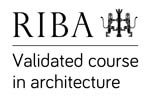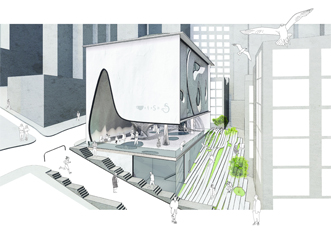BSc (Hons) Architectural Studies
* SHAPE reserves the right to allocate students to study this programme at IVE (Tsing Yi) or DILWL. Locations and timings of some classes conducted by the university lecturers from the UK may vary. Some classes conducted by the university lecturers from the UK may be held in one campus only at IVE (Tsing Yi) or DILWL in the evening.
![]()
![]()
![]()
Introduction
The BSc (Hons) Architectural Studies programme combines creativity and technical expertise, offering students an in-depth understanding of architectural design, history, and sustainability. This innovative curriculum prepares graduates for professional accreditation and diverse career paths within the architecture and urban design fields. Emphasiszing hands-on experience, students engage in collaborative projects, exploring contemporary architectural challenges while fostering critical thinking and problem-solving skills.
Programme Features
Professional Recognition
The provision at IVE (Tsing Yi) is a fully validated programme for Part 1 of the Royal Institute of British Architects (RIBA), which provides a pathway to RIBA Parts 2 and 3;
The provision at DILWL is currently in the process of seeking validation for Part 1 of RIBA.
Studio learning
Studio learning fosters creativity and collaboration, allowing students to engage in hands-on projects that mirror real-world architectural practices. The studio environment promotes peer learning, enabling students to develop practical skills and gain confidence in their architectural abilities. Students are supported by workshop facilities equipped with the latest technologies.
Diverse teaching staff
Not only the programme taught by lecturers from the University of Lancashire and SHAPE, but the diverse teaching staff encompass individuals with a range of international qualifications, research, and experience who are devoted to practice-based and research-engaged teaching.
Further studies
Some of our graduates pursued master’s degrees in architecture at local universities (namely, The University of Hong Kong, The Chinese University of Hong Kong, and the Chu Hai College), and overseas ones in the United Kingdom (UK) and Australia.
Overseas field trips
Students have the opportunity to participate in overseas field trips to explore diverse architectural sites, gain hands-on experience, and enhance cultural understanding. In 2023, the field trip for BSc (Hons) Architecture Studies was held in Japan.
 .
. 
Modules
- Design 2: Experimentation
-
This design studio module aims to further develop the student’s ability to respond to a complex brief of mid-scale projects. The studio encourages experimental design approaches and focuses on developing the student’s understanding of the role of tectonics and climate in driving architectural design. The student will explore briefs that challenge/criticise some existing building typologies. The student will address the various stages of the design development process; considering wider issues such as health and safety, sustainability, technical and construction constraints as well as professional and associated professional considerations.
- Sustainability 2: Transitions
-
This module is part of the undergraduate Sustainability strand intended to equip the student to understand local, regional and global environmental requirements and the architect’s responsibilities towards creating sustainable places.
This module aims to enhance the student’s appreciation of climatic challenges, as well as further develop their skills to critically address, analyse and engage environmental, social, and economic aspects integral to transitioning to a sustainable built environment.
This module underpins themes of equity, inclusivity, efficiency, accessibility, regeneration, and future-proofing. - Construction, Technology and Life Safety 2: Application
-
This module is part of the undergraduate Architectural Technology strand; intended to equip the student to understand contemporary applications of building technologies. The module advances the concepts and theories introduced in your prior study; particularly via deep analysis of a set of precedent case studies. This module aims to:
- Critically appraise alternative structural, constructional, and material systems relevant to architectural design.
- Explore the inter-relationship between aesthetic aspects of architectural design, technical requirements of construction and the needs of buildings users.
- Explore the interdependences of Structures, Materials and Construction in relation to the sustainable integration of technology into architectural design.
- Professionally communicate information and arguments in a variety of forms.
- Humanities 2: Discourse
-
This module is part of the undergraduate Architectural Humanities strand; intended to equip the student to understand and engage in contemporary discourses of architecture. The student will be encouraged to develop an understanding of what architectural theory is and its relationship to the practice of architecture. The module will provide a specific emphasis on the principles of architectural theory by exposing and discussing various architectural debates, both historical and contemporary. This module reinforces the position of the architect in the present and thus intends to introduce the students to the various ways by which contexts, ideologies, politics and environment affect architectural theories and thus practice.
- Design 3: Autonomy
-
The module aims to provide a vehicle for students to illustrate the culmination of knowledge, skills and abilities that they developed throughout the course of the Degree. The students will develop their abilities towards completing a rigorous and comprehensive design that embodies all aspects of architectural design producing an appropriate and enriching environment. Through this module, the students will develop a level of autonomy to form their own paths into the architectural profession.
This module aims to investigate the relationship between people/community, town/city, and buildings. The focus will relate detail, construction and structure, materiality, engaging with tectonics, sustainability, life safety and aesthetic aspects of architectural design in an urban environment, together with the consideration of inherent contextual issues and planning constraints.
- Advanced and Future Strategies
-
This module aims to emphasise the application of knowledge gained in the sustainability and technology strands (developed throughout the course) within architectural and urban design projects and to project beyond common/standard contemporary architectural applications.
Engaging with experts from varying domains, the module aims to introduce the students to multi/interdisciplinary thinking and practices integral to the construction industry; so that they have an understanding of the wider contributors to the building/construction industry. The module aims to explore emerging and future trends in the sustainable built environment as well as actors beyond the field of architecture.
- Professional Practice
-
This module aims to introduce professionalism, practice management, job running, working within the legal and regulatory framework, understanding clients and the importance of cost. The students will reflect on their own aspirations (via developing their individual and group manifestos) for their career and the industry to which they are about to become affiliated, and develop their thinking and communication skills that are needed to respond and adapt to the changes within the construction industry.
- Humanities 3: Critical Context
-
This module is part of the undergraduate Architectural Humanities strand; intended to equip the student to understand and engage in contemporary discourses of architecture. This module examines The Context as a Public Project to develop a critical knowledge of the forces at play in the built environment; specifically, an understanding of the place as a public composition that is influenced by multiple power structures and economic and cultural forces.
Assessment
Portfolio, written essay, report, etc.
Professional Recognition
This programme is an eligible academic qualification for the Hong Kong Construction Industry Council (CIC) Building Information Modelling (BIM) Manager Certification scheme.
|
|
The provision at IVE (Tsing Yi) is a fully validated programme for Part 1 of the Royal Institute of British Architects (RIBA), which provides a pathway to RIBA Parts 2 and 3; |
QF Level
|
|
QF Level : Level 5 |
|
Importance of choosing a non-local top-up with QF Level 5Employment
|
|
Entry RequirementsHolders of a VTC Higher Diploma (HD) from one of the following programmes:
OR |
English Proficiency Requirements
OR
OR
|
Fees
- Application Fee : HK$200 (No application fee before the deadline!)
- Registration Fee : HK$3,500
- Tuition Fee : HK$204,990 by 8 instalments
Scholarships
A variety of attractive scholarships are available to prospective, current and graduating SHAPE students.

 |
“I chose this programme as it is accredited by RIBA and offers a Part-1 qualification, which has been instrumental in supporting my goal of becoming an architect. I would like to highlight the invaluable opportunity to attend lectures delivered by UK tutors. Their teaching methods provided meaningful insights that helped refine my own design style and approach to project design. " LAU Chi Yui
|
|
Financial Aids
The following HKSAR Government financial assistance schemes are available to eligible students who pursue this programme at SHAPE:
For details including eligibility and subsidy amount, please refer to the hyperlink of each scheme.
Career Prospects
Kevin Ma articulated to BSc (Hons) Architectural Studies after completing his Higher Diploma studies. He is now a BIM Assistant Manager.
Further Studies
Having been recognised at QF Level 5, this top-up degree programme meets the standard of locally-accredited bachelor's degree programmes. Upon graduation, students can pursue their further studies at Master’s degree level in Hong Kong or Overseas.
|
|
"My first bachelor’s degree was in finance and economics. After working in the banking industry for two years, I realized my passion was architecture instead. At that time, I was desperate to change my career but was short of money and time. Thanks to SHAPE, its part-time programme allowed me to work in the daytime and engage in advanced study at night. After graduation, I was admitted to the Master of Architecture of HKU." Wilson Cheung |
|
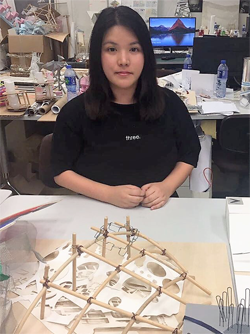 |
|
"The modules taught by the UK lecturers allowed me to experience cultural differences between Hong Kong and the UK, and understand the importance of “community” and “sustainable development” concepts. I graduated with a first class honours and have completed a Master Degree in Architecture at the University of South Australia to pursue my career goal as an architect." Yumi Lo |
|
 |
"Though balancing part-time study with full-time work was challenging, the opportunity to broaden my knowledge in Architectural Studies is invaluable. I am especially thankful to have studied and worked with a group of like-minded classmates. After graduation, I was admitted to the Master of Architecture at the University of New South Wales, Australia." Ben Liu |
|
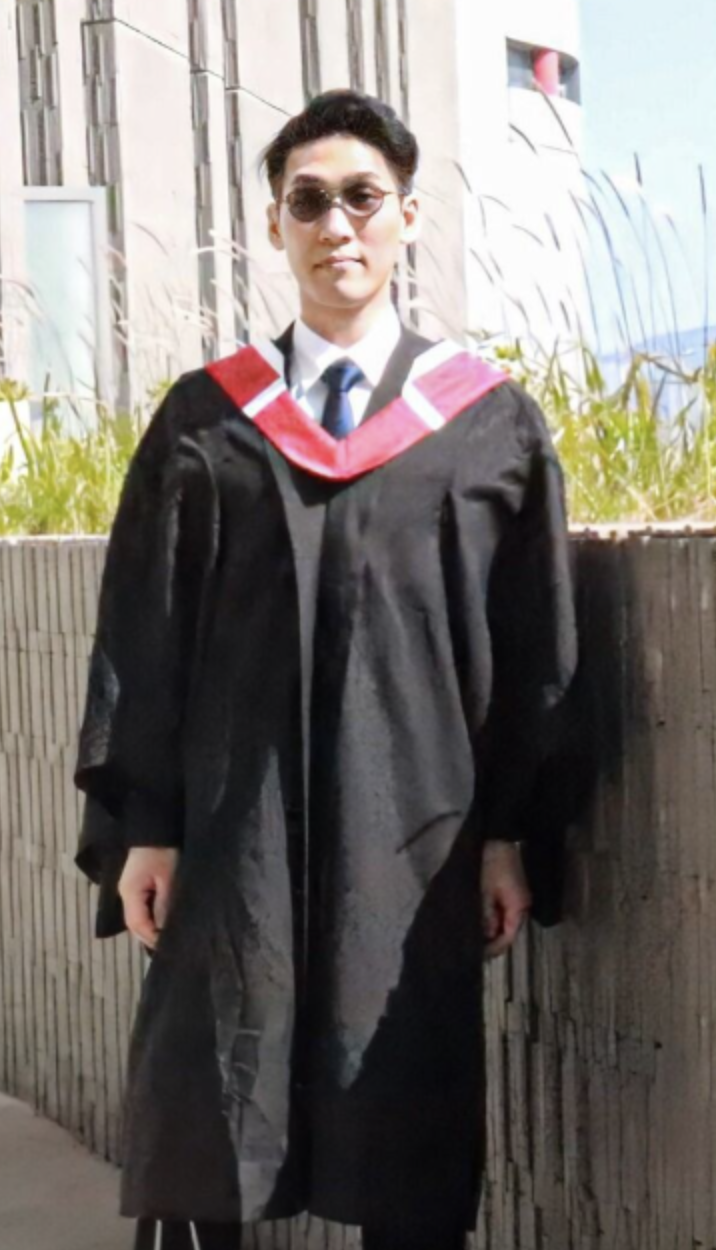 |
“This programme is recognized by the Royal Institute of British Architects (RIBA Part 1), which will facilitate my advancement and allow me to pursue various architectural certifications. Additionally, the lecturers from the University of Lancashire utilize an encouraging and inspiring teaching approach, enabling me to cultivate out-of-the-box thinking, enhance my creativity, and improve my communication skills.” Kenneth Cheung BSc (Hons) Architectural Studies
|
|
|
|
||
Graduation Ceremony
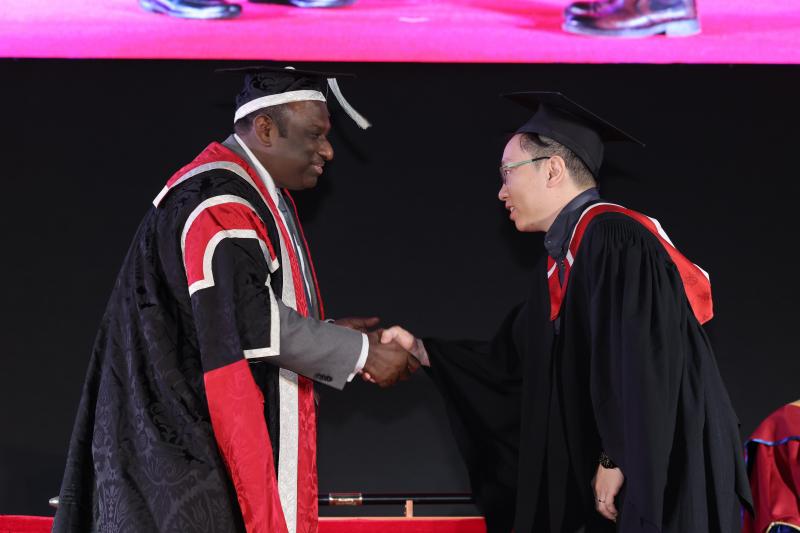
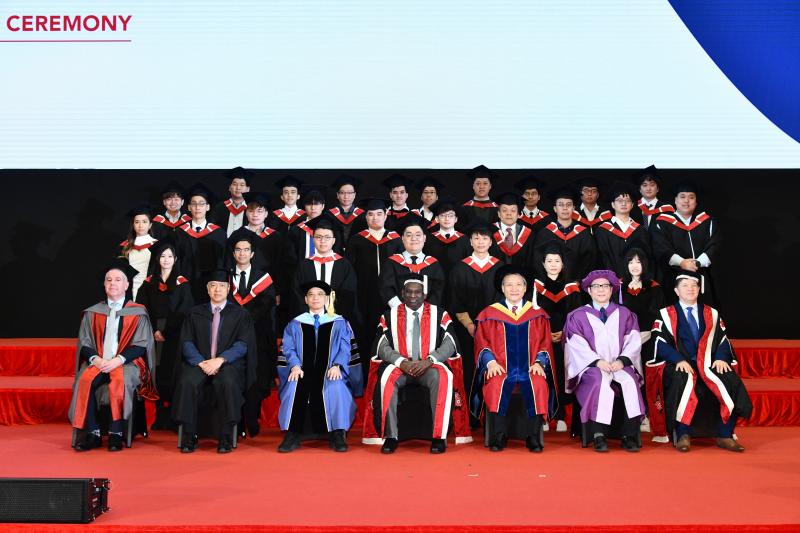

Enquiries
| Tsing Yi Campus | |
| Programme Coordinator | Mr. Fred Chan |
| Tel. no. | 3757 9148 |
| fredchan@vtc.edu.hk | |
| General Enquiries | Ms. Queenie Lam |
| Tel. no. | 2436 8600 |
| queenielam@vtc.edu.hk | |
| DILWL Campus | |
|
Programme Coordinator |
Ms. Julia Mok |
|
Tel. no. |
3928 2827 |
|
|
|
|
|
|
| General Enquiries | Ms. Ming Wong |
| Tel. no. | 3928 2485 |
| ming.ayame@vtc.edu.hk | |
Connect with SHAPE Community
Connect with University of Lancashire Community

